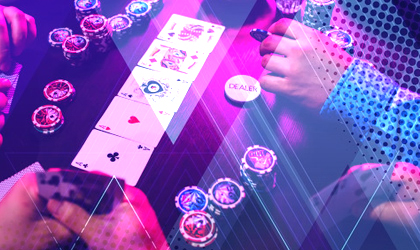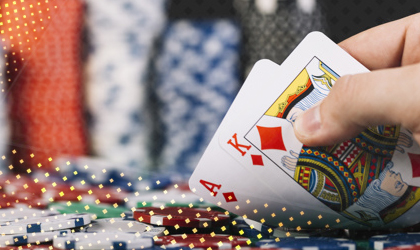How a Beginner Should Play Against a Pro

Jon Sofen 11:26 Jul 19th, 2018 101 Poker
Personally, I try to avoid games that are filled with pros, and I think you should as well. However, sometimes you’re stuck in a game with some pros – or just one – especially in a tournament. If you’re at the table with a pro and you aren’t an experienced poker player, you can’t back down. You can’t just let your opponents push you around.
If you allow your opponents to run all over you, they will continue to do so. I take advantage of weak players that are afraid of confrontations with marginal hands. If I sense my opponent has a vulnerable hand such as middle pair or top pair with a weak kicker and I have nothing, I’m going to bet aggressively knowing that, most of the time, I can force my opponent out of the pot. If you let pros such as myself to walk all over you, you will consistently lose. So how should a newbie play against a pro? Here’s some advice.
BE SNEAKY WITH YOUR BIG HANDS
If you start to sense an opponent is taking advantage of you, when you hit a big hand, play it slow. Let’s say the flop comes 9-9-3 and you have A9. Check the flop to your opponent and let your opponent hang himself. Most pros are able to spot the beginners and weak players early on and then plan to go after them. In a hand such as the one above, you should check-call the flop. Check-call the turn, and then check-raise the river.
Betting out the flop, or even the turn, doesn’t make much sense. You have a monster hand up against an opponent that loves bluffing you. Disguise your hand strength by checking and trick your opponent into bluffing into your monster hand. You can also check-raise the turn. That’s not a bad play either, especially if a face card or an ace hits on the turn (your opponent very well could have hit a pair).
BE SELECTIVE PRE-FLOP
The worst thing you could do is to play a lot of hands pre-flop at a table with multiple pros. Beginners should always have a conservative hand selection strategy. Don’t play Q-J in early position. Don’t raise religiously with marginal hands such as KJ, suited connectors, Ace-rag, and weak pairs. Play premium hands only in early position and expand your range in late position so long as there are no raises in front of you.
I realize you can’t win a hand that you don’t play. But you can lose any hand you are dealt. Isn’t it better to not lose money than to lose money? There is a caveat. Playing too tight against a table of pros could be costly. A skilled player will know that you have a big hand every time you bet if you rarely bet. So you do need to occasionally mix it up to keep your opponents on their toes. That way you can get paid off on your big hands.
ALWAYS CONTINUATION BET
 You can’t be afraid to fire at a flop if you missed following a pre-flop raise. By checking the flop, any decent player will pick up on this obvious sign of weakness. The only exception is if you are in first position in a multi-way pot, especially if an Ace or King hits the board. If you have position and raised pre-flop, you should almost always take a stab at it.
You can’t be afraid to fire at a flop if you missed following a pre-flop raise. By checking the flop, any decent player will pick up on this obvious sign of weakness. The only exception is if you are in first position in a multi-way pot, especially if an Ace or King hits the board. If you have position and raised pre-flop, you should almost always take a stab at it.
Contrary to popular belief, pros are actually the easiest players to bluff. That’s because they have patience and discipline, and would rather let someone take down a small pot while they wait for a good spot to win a big pot. Checking the flop in position is a sign of weakness. What happens if your opponent bets out the turn because you checked the flop? You’ll probably have to fold, and that will be a wasted opportunity.
On This Page



